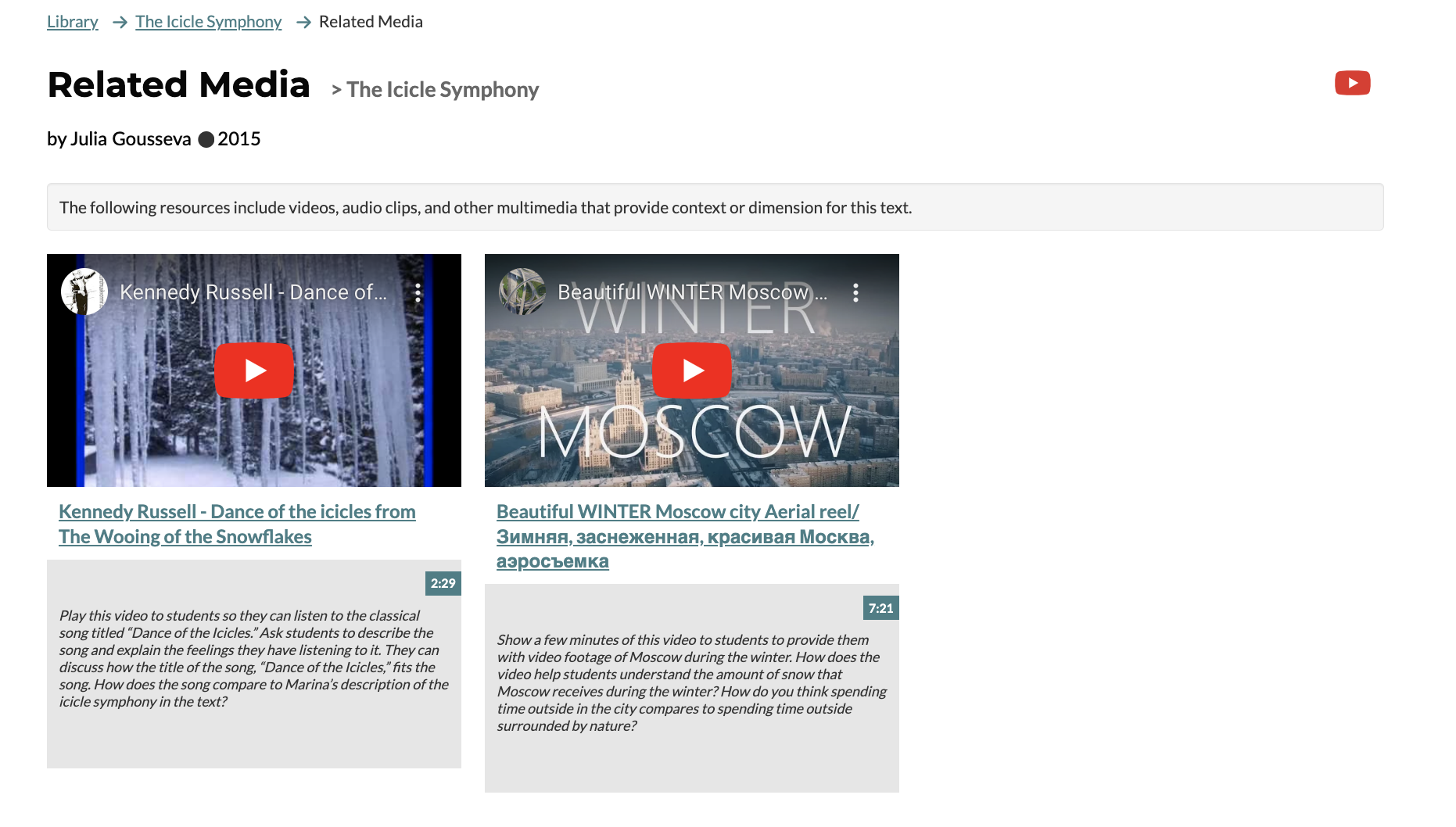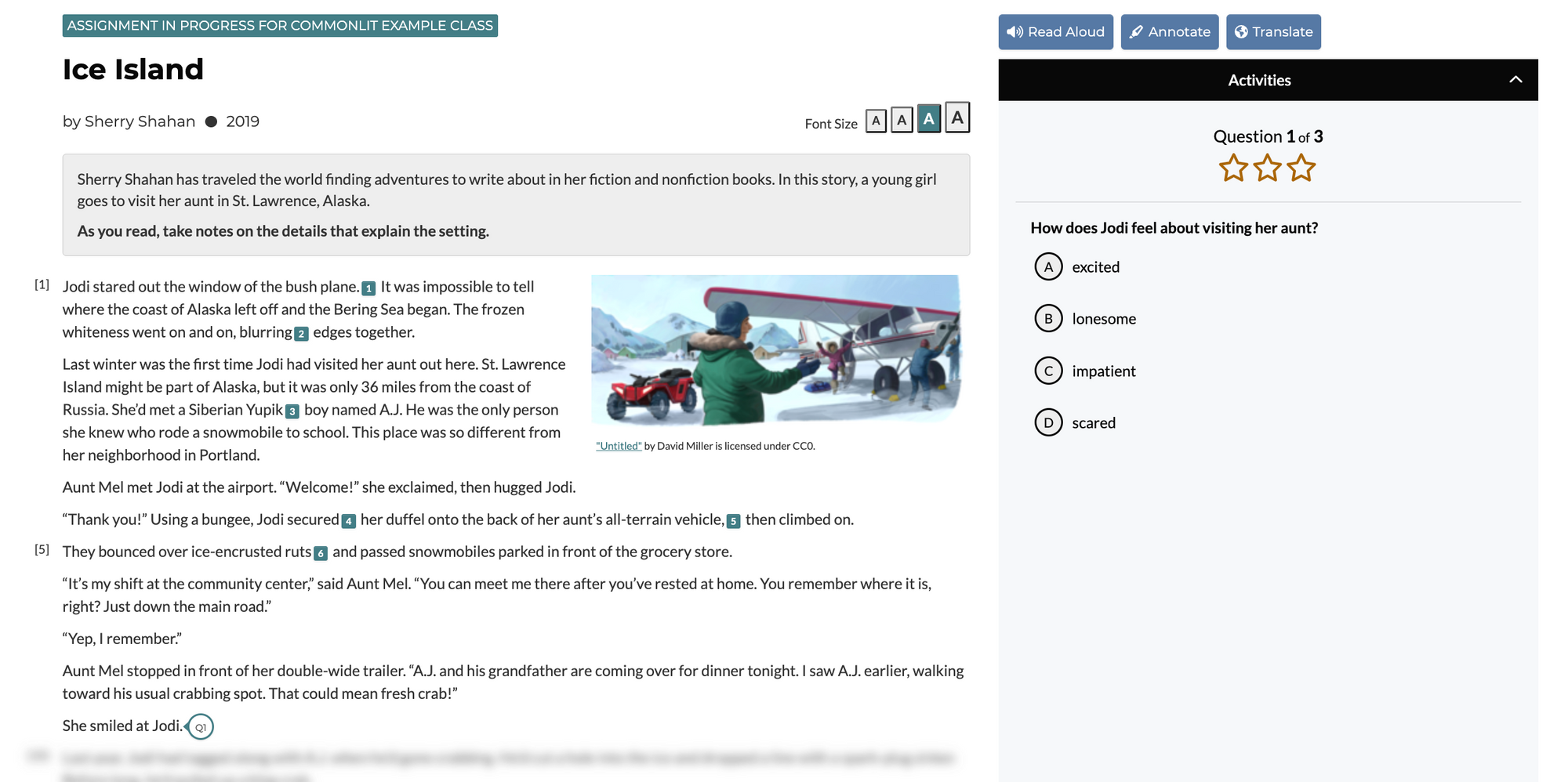 Elementary Classrooms
Discover 9 Heartwarming Stories about Winter in CommonLit’s Digital Library
Elementary Classrooms
Discover 9 Heartwarming Stories about Winter in CommonLit’s Digital Library
Celebrate the season with 9 poems and stories about winter for elementary students!
Through CommonLit’s digital literacy program, teachers can access dozens of fun, seasonal texts about winter to engage students. Teachers can also boost students’ reading comprehension by challenging them with CommonLit’s assessment and discussion questions.
In this blog post, we’ll share 9 stories and poems about snow and winter, as well as assessment and discussion questions that will bring warmth to your classroom on the chilliest of days.
“Snow Pony” by Krista Curran (3rd Grade)
On a snowy day, Asher builds a snowman while his sister and dad play nearby. When Asher and his dad aren’t looking, his sister climbs on the snowman and knocks it down. At first, Asher gets angry at sister for destroying the snowman, but then, he changes his attitude and decides to build a snow pony for her.
Encourage students to make text-to-self connections with Discussion Question 3, “In the text, Asher felt angry when his sister wrecked his snowman. Has someone ever broken something that was important to you? How did it make you feel? How did you respond? Based on what Asher did, what ideas do you have for what might make you feel better next time?”
“The Danderfield Twins: Two Much Snow” by Polly Horvath (3rd Grade)
A group of friends are bored of staying indoors and playing the same games all winter, so they each invent an outdoor activity to entertain themselves. They make maple apples, hunt for marshmallows in the snow, and have a snowball fight.
As students read, have them take notes about important events of the story. They can use their notes to provide supporting evidence in their answer for Assessment Question 4, “How does paragraph 2 help readers understand the story?” This question will help students understand the main idea of the story.
“The Icicle Symphony” by Julia Gousseva (3rd Grade)
This winter story follows Marina, who doesn’t like being outdoors in the winter and wants to stay home on a snowy day. Marina is reluctant when her uncle picks her up to take her to listen to an icicle symphony. Mesmerized by the sound, Mariana begins to appreciate the beauty of winter. This text would make a great lesson on character change.
Show students Related Media video “Dance of the Icicles from The Wooing of the Snowflakes,” so they can listen to the classical song “Dance of the Icicles.” Then, ask students to describe the song and explain the feelings they have listening to it.

“The Human Zamboni” by Jennifer Sneed (3rd Grade)
Harper dreams of competing as a figure skater in the Olympics. After failing to land a jump in an ice skating competition, she considers quitting the sport. Harper’s father reminds her of the importance of enjoying the sport and not the glory of winning.
Start a classroom discussion with Discussion Question 2, “In the story, Harper finds great joy in skating but she is not the best skater. Do you think it is necessary to be good at something to fully enjoy it? Why or why not? Is there something that brings you happiness, even though you might not be the best?” This question will encourage students to practice making text-to-self connections.
“Broomball” by Nora Nickum (4th Grade)
In this short story about friendship, Jade, a soccer star from California, struggles to adjust to her new life in Minnesota where the kids at her school prefer playing hockey. Jade cannot afford to buy skates, but she agrees to join her friend and check out a local rink. At the rink, Jade discovers broomball, a winter sport in which players wear sneakers instead of skates.
Show students the Related Media video “This. Is. Broomball!!” to teach students about this winter sport. Ask students how the video helps them understand the way broomball is played. Does it look like what the text describes, or does it look different to them? Do they see why Jade would enjoy the game? Would they like to play? Why or why not?
“Trail into Darkness” by Brad Robie (4th Grade)
In this winter story, Luke and his family go snowshoeing through the woods. When Luke’s family decides to return home, he gets distracted by a set of animal prints and gets lost in the woods. As it gets dark, Luke panics, but eventually finds a way to calm down and locate his family.
Boost students’ reading comprehension in a classroom discussion. Ask Discussion Question 1, “In the story, Luke is scared to be lost in nature. What dangers does he face in nature? Describe a time you were scared by something in nature.” This is a great story for teaching character development and helping students build their social-emotional skills.
“Ice Island” by Sherry Shahan (4th Grade)
Jodi visits her aunt and a friend named A.J. on a remote island in Alaska. While looking for A.J. Jodi slips on an icy floor and her leg crashes through a fissure. A.J. finds Jodi and guides her out of the dangerous situation.
As students read, have them, take notes on the details that explain the setting. They can use their notes to provide supporting evidence in their answer for Assessment Question 5, “Describe what it’s like to live on Ice Island.” This question will help students recognize the challenges that the winter weather presents for those who live in Alaska.

“Dust of Snow” by Robert Frost (5th Grade)
In this poem about winter, the speaker is having a bad day when he notices a crow outside on a snowy branch. The crow shakes some snow from the branch onto the speaker, lifting the speaker’s mood.
Pair this text with Robert Frost’s other poem “Nothing Gold Can Stay.” Ask students to compare the themes of the two Frost poems. How does the tone of the two poems compare? How does Robert Frost use nature to explore the themes of the two poems?
“Cat” by Marilyn Singer
A cat spends the winter day indoors while their owner is away. The cat enjoys sitting on the owner’s chair and keeping warm by the fire, avoiding the winter weather.
Ask Discussion Question 3, “Why do you think the poet chose to tell this poem from the point of view of a cat? How would this poem be different if it was written by the cat's owner?”
Next Steps
Looking for more poems and short stories about winter? Check out our CommonLit library and find great texts about the season!
If you’re interested in learning all about CommonLit’s free online reading program, join one of our upcoming webinars!

